
Bacterial vaginosis and vaginal thrush are the two most common vaginal infections, but there should be no embarrassment associated with them. Nor should you think of them as sexually transmitted infections (STIs) – they are not classified as such and not usually considered serious. Despite this, they can be triggered by sexual activity and can be passed on to partners during sex.

Both conditions are caused when the usual levels of bacteria and fungi in the vagina are thrown out of balance, enabling fungi like Candida and ‘bad’ bacteria like Gardnerella to multiply. This can result in vaginal symptoms like irritation, itching, odour or unusual discharge. Several factors increase the risk of developing thrush, including antibiotics, pregnancy, products that irritate the vagina/vulva and a weakened immune system.
Bacterial vaginosis is the most commonly reported vaginal infection among women of reproductive age and affects 23% of women in Europe, most often those between 15-44 years of age. It is common for bacterial vaginosis to recur, usually within a few months, requiring further intervention to stop it coming back again.

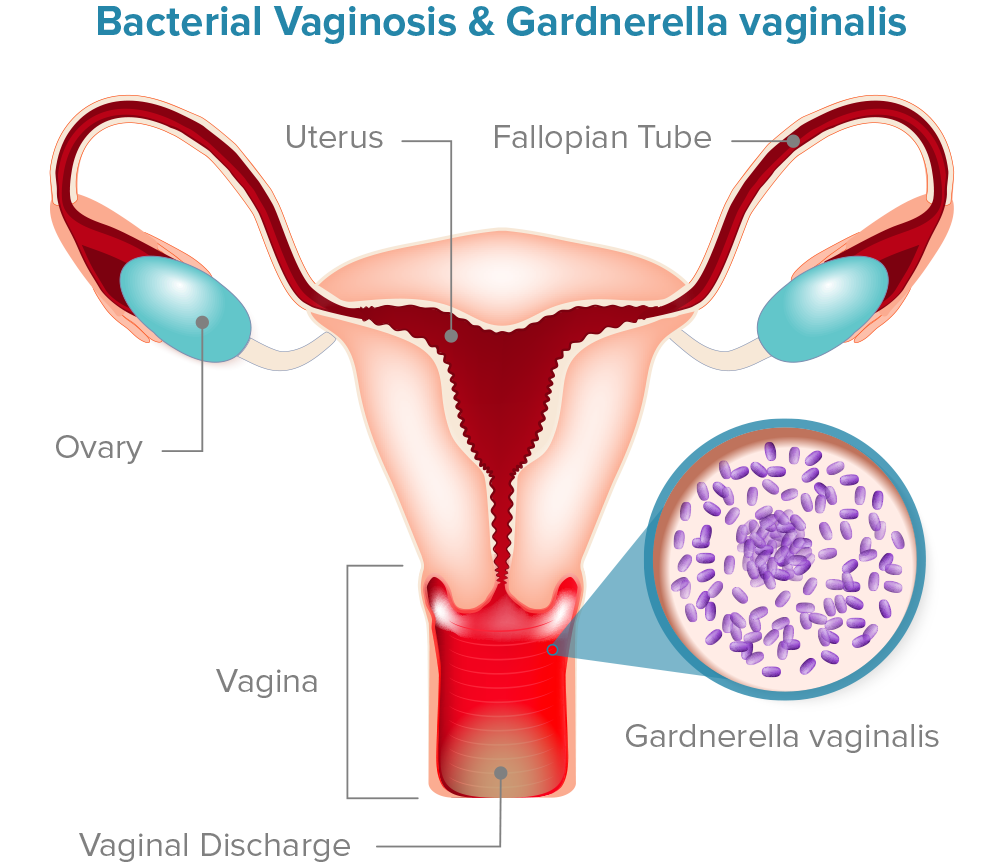
These include:
- a vaginal discharge that is often greyish-white, thin and watery
- a strong fishy smell from the discharge, particularly after sex
Bacterial vaginosis is not usually associated with soreness or itching.
Half of women with BV do not have any symptoms.
The condition is caused by a change in the natural balance of bacteria in your vagina. Why that happens is not fully understood but the vaginal environment becomes less acidic, allowing bacteria like Gardnerella that cause bacterial vaginosis to grow and multiply.
You’re more likely to get bacterial vaginosis if:
- you are sexually active, although women who have not had sex can also get BV
- you’ve had a change of partner
- you have an intrauterine contraceptive device
- you use perfumed products in or around your vagina
Having bacterial vaginosis can also increase your likelihood of contracting a sexually transmitted infection.
This condition is also very common. 75% of women will develop vaginal thrush at some point in their lives. It is most likely to happen in the 25-34 year age range. Recurrent vaginal thrush (defined as 4 or more episodes every year) affects over a hundred million women annually around the world.

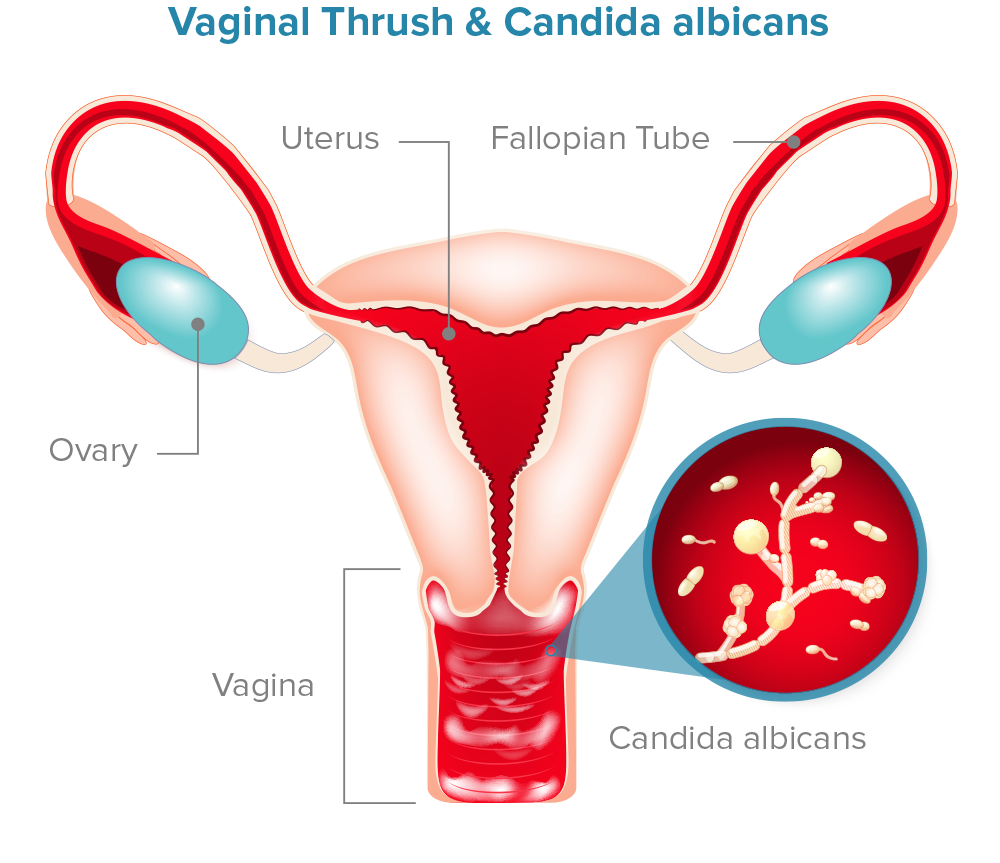
These include:
- white vaginal discharge (often described to look like cottage cheese) which does not usually smell
- itching or irritation around the vulva or vagina
- soreness or stinging during sex or when you pee
Vaginal thrush is caused by the overgrowth of a fungus or yeast called Candida albicans. Usually, ‘friendly’ lactobacilli bacteria and an acid pH help keep a healthy balance of microorganisms in the vagina and prevent an infection developing. However, sometimes the balance is lost and Candida can grow.
That can happen if:
- your skin is irritated or damaged
- you’re taking antibiotics
- you have poorly controlled diabetes
- you have a weakened immune system (e.g., because of HIV or chemotherapy)
- you’re having hormone replacement therapy (HRT)
- you’re taking an oral contraceptive
- you’re pregnant*
*Please note that Vivesse should not be used during pregnancy or breastfeeding.

In the past, a proper understanding of bacterial vaginosis and vaginal thrush has been hampered by it being a taboo subject. Doctors have often viewed these infections as being relatively minor problems without always recognising the impact that they have on women’s quality of life.
Vaginal infections such as bacterial vaginosis and vaginal thrush can affect a woman physically and emotionally, resulting in feelings of anxiety and distress.

Women have said that the symptoms of bacterial vaginosis in particular, have made them feel embarrassed, ‘dirty’ and very concerned that others may detect their malodour and abnormal discharge. Bacterial vaginosis can have a big impact on women’s sex lives and intimacy, and for some women even leads to avoidance of sitting close to anyone else.
Between 5 and 9 women out of every 100 aged 15-34 report experiencing recurrent vaginal thrush. Antifungal drugs can effectively treat acute vaginal thrush but cannot prevent recurrences. This has an overall negative effect on their quality of life.
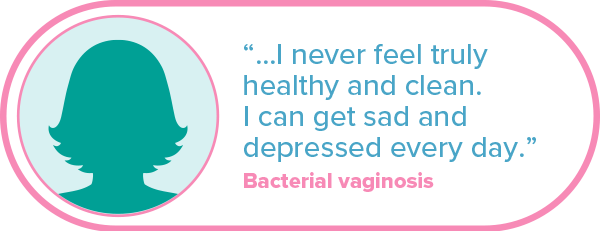

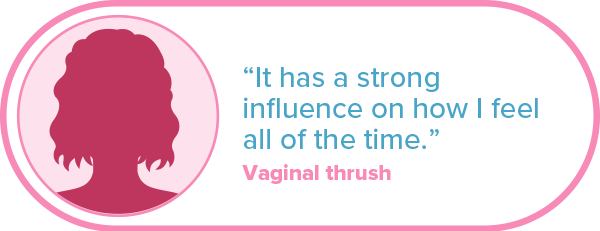



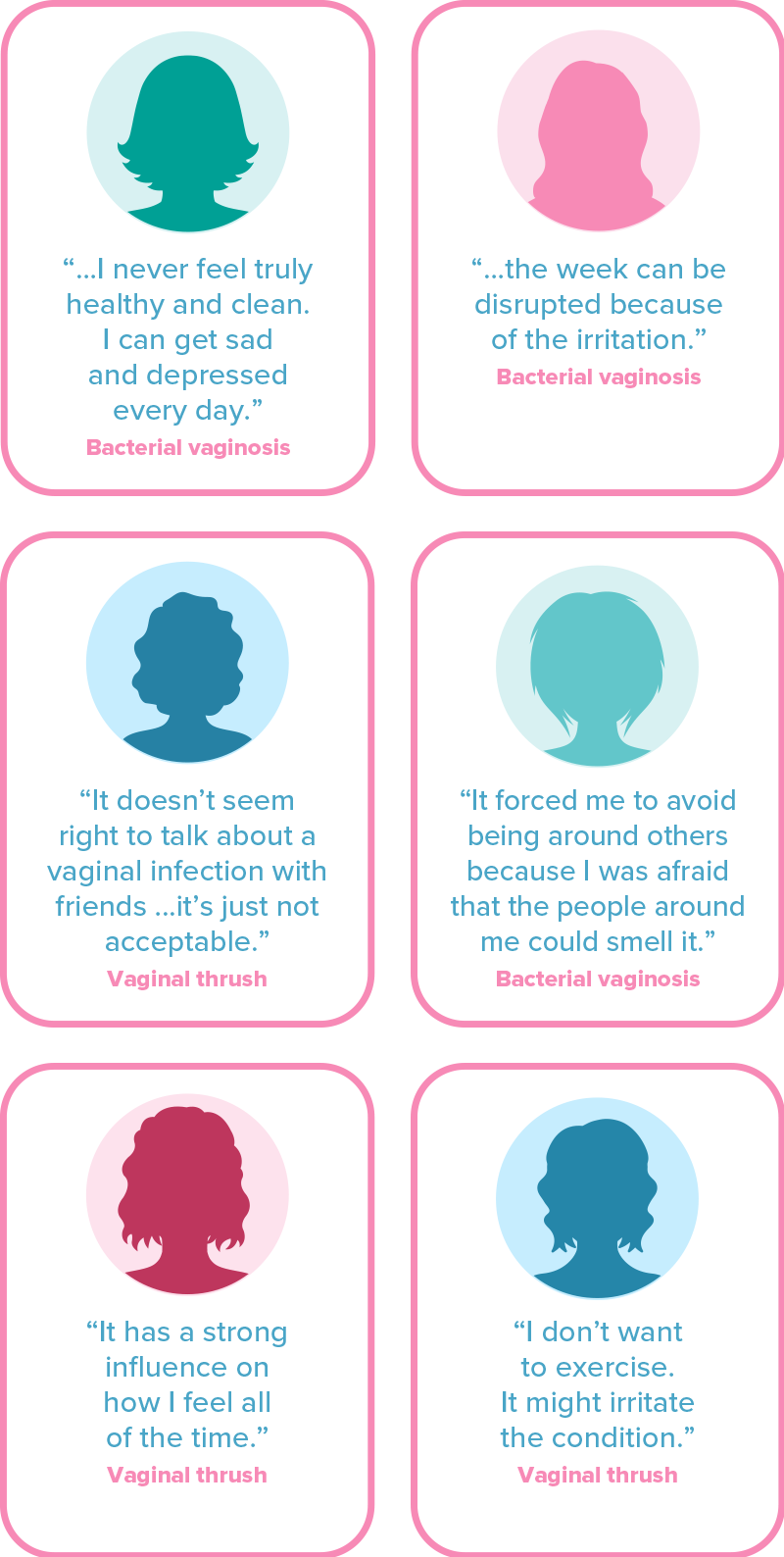
Thankfully, a more open attitude to intimate issues may reduce the stigma. Visit our Where to Buy page to find out where to purchase Vivesse. Vivesse deals with the symptoms of both bacterial vaginosis and vaginal thrush.
These vaginal infections may sometimes require treatment with an antibiotic or antifungal medicine. When that is the case, Vivesse can be used in combination with it.
UK-LPG-02-25-00002 April 2025

